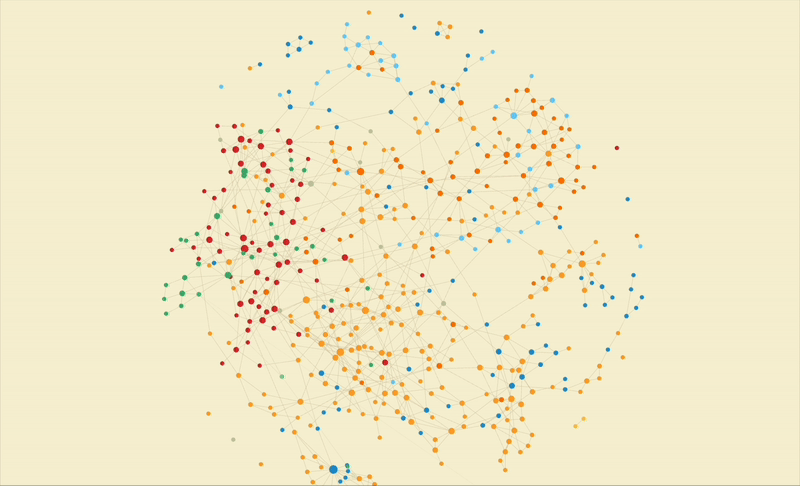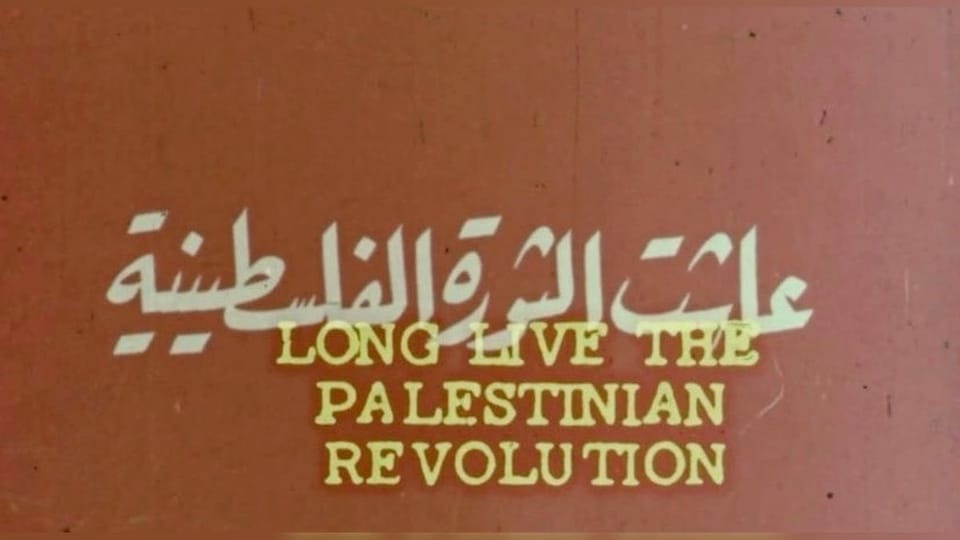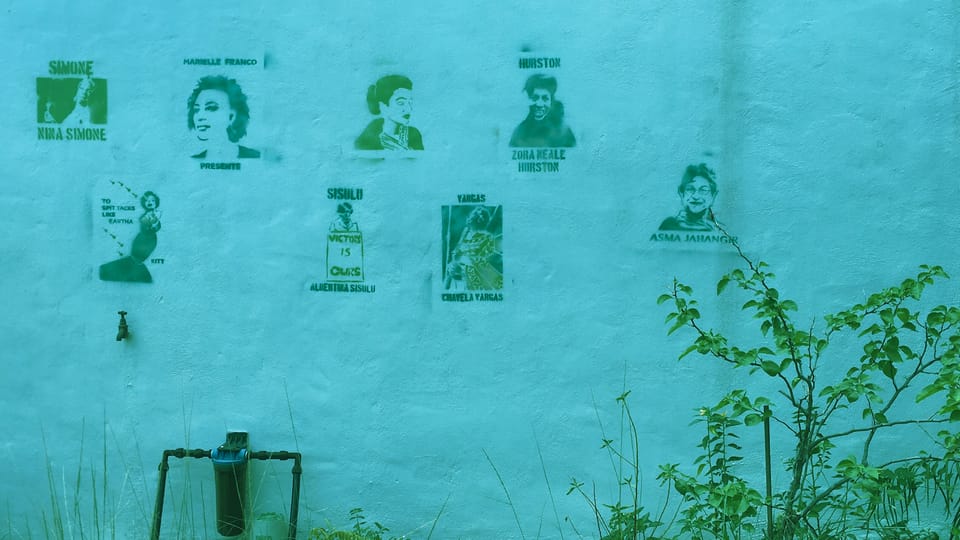Human selfishness is a colonial myth
Isn't it rational to believe that humans are innately violent, chaotic, and fragile? That our truest self is selfish and competitive, that we break into aggression and panic in disasters? Doesn't our power-hungry nature compel us to ruin everything?
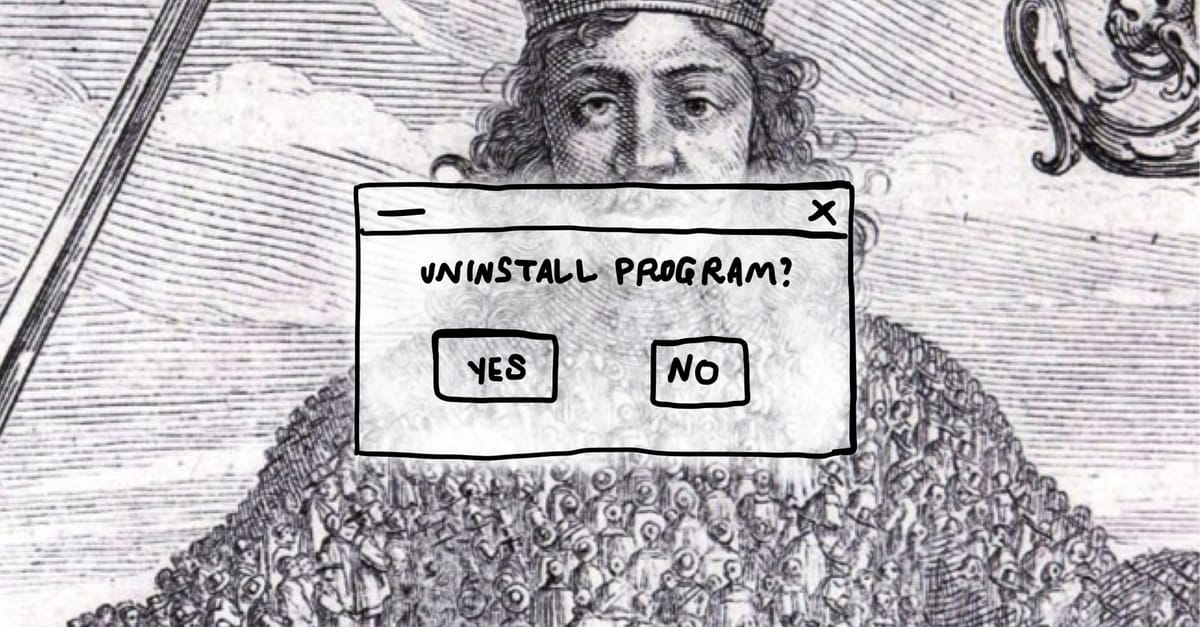
You have heard it before: We are innately violent, chaotic, and fragile. It's every man for himself out there. Trust no one. Love only makes you weak. You are all you got when society dissolves into panic at the next disaster. That's because humans at their very core are selfish, competitive, aggressive. Even if we start with a clean slate, our power-hungry nature compels us to ruin it. So it's better to accept that nothing good will ever happen, that this is the way things will be, that we'll never make things better.
But is this really the most super logical rational truth out there about humankind?
From Lord of the Flies to Survivor
There is a Soft Power Industry, one of Dreams. It is in the business of crafting powerful fantasy images and myths to sell through the envy of others. It asks us to submit to its narrow vision of belonging: "that we transform ourselves, our lives, by buying something more."
Somewhere in early 1950s Britain, a white ex-soldier turned schoolmaster was about to be a big part of it. Still obsessed over his experiences in WWII, he drunkenly wrote raw fiction about violent boys stranded on an island. His 1954 novel was published in over 30 languages and celebrated as a 20th century classic. In 1983, he was awarded a Nobel Prize for his "realistic narrative art" that illuminates "the human condition in the world of today." And so it was that a piece of fiction written by a British Navy soldier was culturally positioned since the 1960s as a social truth— that humans are violent, chaotic, fragile by nature. "Man produces evil as a bee produces honey," he said.
He would often pit his students into groups to fight each other as he wrote the novel. Years later, Lord Of The Flies influenced the rise of reality TV like Survivor and MTV's Real World, even though the work in designing and producing those shows to induce drama proves that it actually takes a lot of manipulation to bring out the worst in people.
A pessimistic view of humankind is just very successful marketing.
Lord of the Flies was named after the Abrahamic demon Beezelbub. But the long philosophical tradition takes us back to another entity: the biblical sea monster Leviathan. Thomas Hobbes in the 1600s wrote a piece of social contract theory recommending that we feed our body and soul to one ruler up top who has all the power (I repeat, a sea monster). That is how the people will stay safe! Hobbes became the first political influencer with strong thumbnail game, depicting a king as a giant made up of people. It meant to show that society can be preserved by unanimously supporting one absolute ruler.
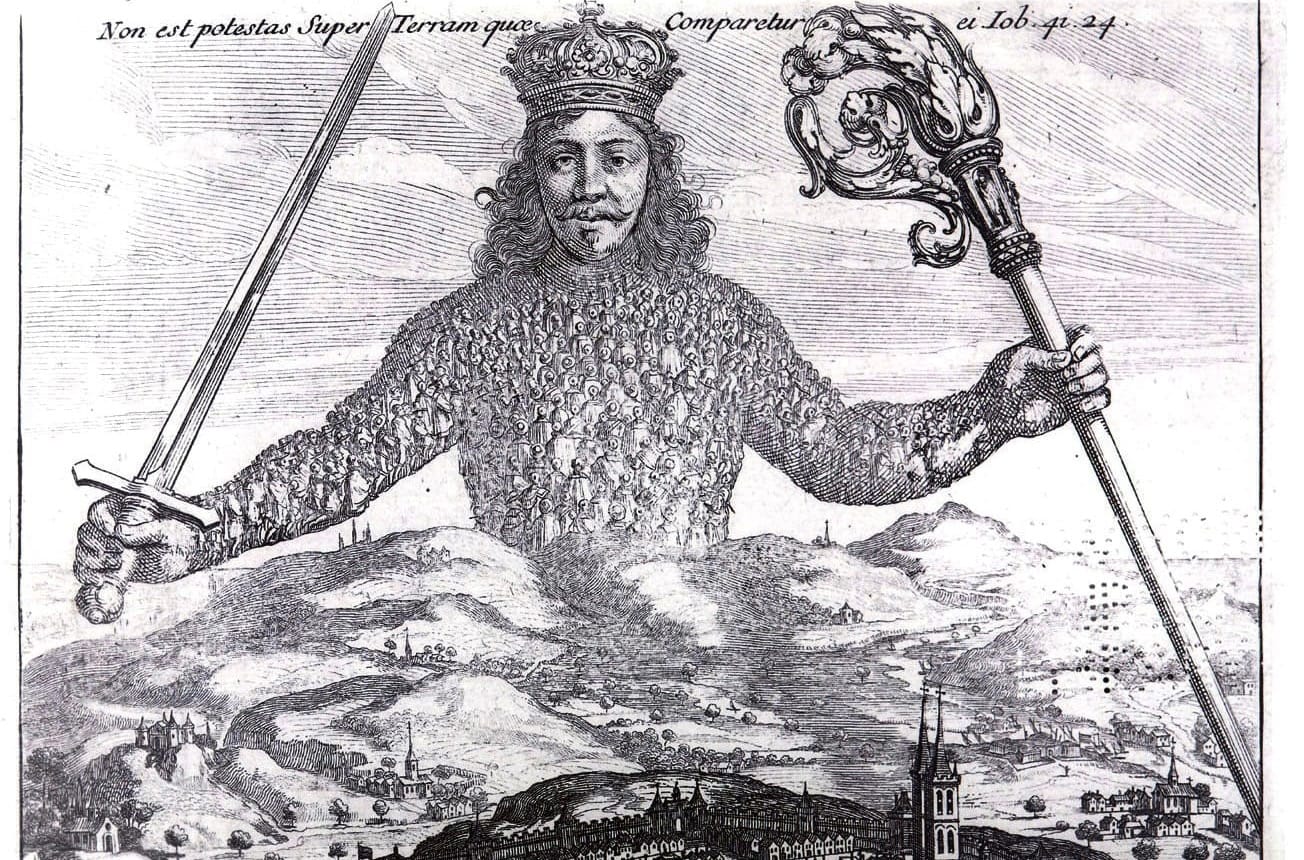
Human life in that state of nature was, in his words, ‘solitary, poor, nasty, brutish, and short’. The reason, he theorised, was simple. Human beings are driven by fear. Fear of the other. Fear of death. We long for safety and have ‘a perpetual and restless desire of power after power, that ceaseth only in death’. The result? According to Hobbes, ‘a condition of war of all against all.’ Bellum omnium in omnes. But don’t worry, he assured us. Anarchy can be tamed and peace established – if we all just agree to relinquish our liberty. To put ourselves, body and soul, into the hands of a solitary sovereign. He named this absolute ruler after a biblical sea monster: the Leviathan. Hobbes’ thinking provided the basic philosophical rationale for an argument that would be repeated thousands, nay, millions of times after him, by directors and dictators, governors and generals: ‘Give us power, or all is lost.’ — Rutger Bregman, 2019
But when did we start living 'in a society' anyway? We know communities have always existed, but it was in the European Enlightenment (the time of Hobbes) that both created and analysed the idea of society and the social being, said Nathan Rochelle DuFord. That one European idea of society came to dominate how we saw each other, that a cynical competitive friction is the thing that connects us all.
Yet it was not just any conception of sociality that interested the Enlightenment scholars; rather, it was sociality generated by commercial society, and a sociality that simultaneously centered cooperation and competition. The concept of society captured in the Enlightenment is in many ways a cynical, painful, and frustrating endeavor far removed from utopian thought at the time. In fact, Enlightenment theorists often argued that it was just this social friction that bonded society together: not the force of our love, affection, or tenderness for each other, but a cynical desire to best another, to extract wealth or resources, or to gain power and prestige. — Nathan Rochelle DuFord, 2022
The narrative of humankind as competitive is a product of European colonialism. As Arun Kundnani puts it: "Competition is the engine of progress, and any attempts to impede it threaten the forward march of human development." But if you believe that humans grow through competition, then you would have to subscribe to the 'natural' consequence that all 'primitive' cultures will progress towards civilisation by imitating the universal West. That's just Survival of The Fittest, isn't it?
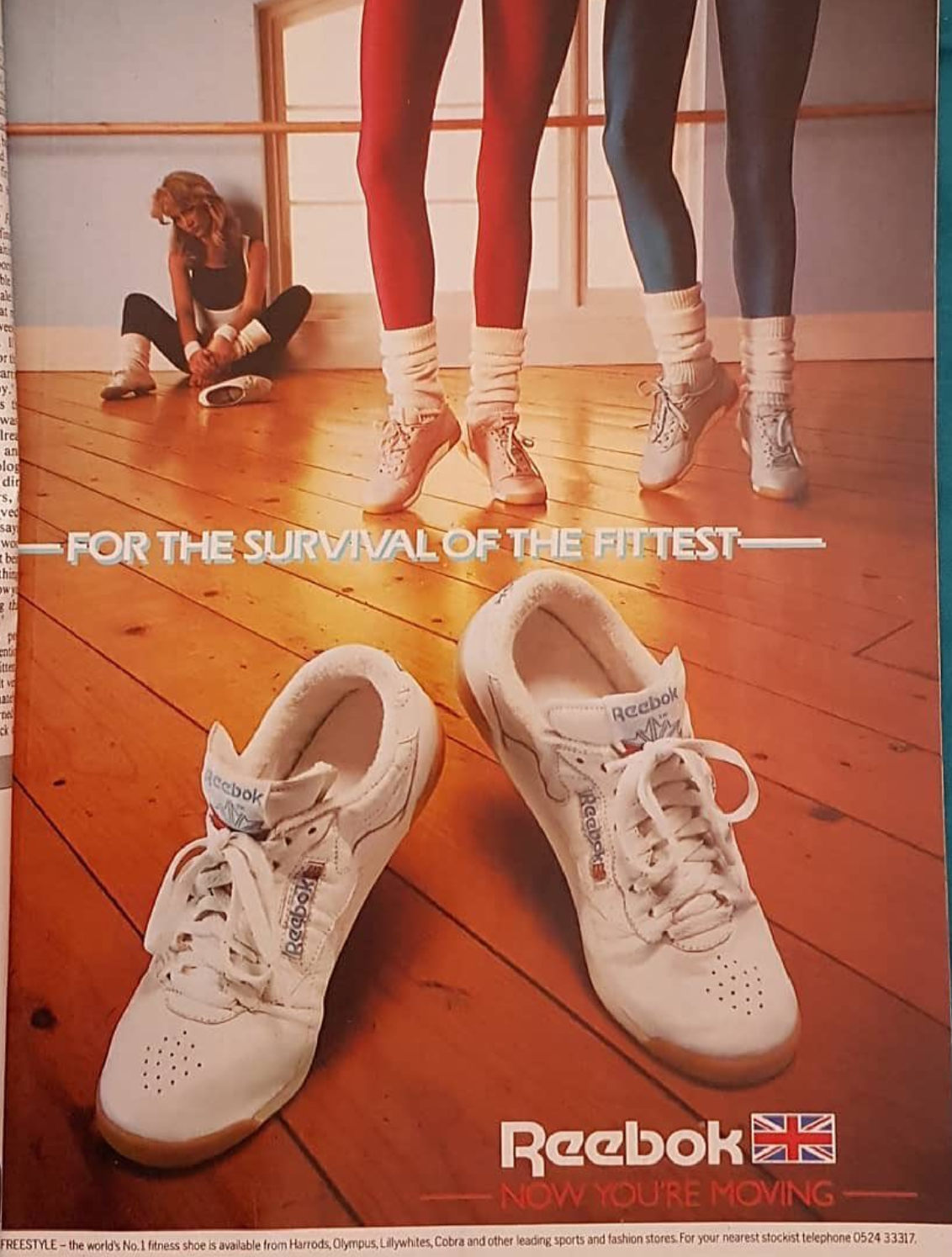
In the 1800s, Herbert Spencer sold hundreds of thousands of books to racists on that idea: that we should embrace life as one great battle of "man against man" and "nation against nation" so that nature (lol) can clear the world of the poor and make room for better. The cynical myth was one of the Western canon's greatest hits, and was even the basis of placing reason over faith in the Enlightenment. European imperialists used Survival of The Fittest to justify colonial expansion, calling their domination of others natural because of white supremacy.
When it comes to notions about human nature, the continuity throughout Western thought is striking. 'For this can be said of men in general: that they are ungrateful, fickle, hypocrites, summed up the founder of political science, Niccolò Machiavelli. 'All men would be tyrants if they could,' agreed John Adams, founder of American democracy. 'We are descended from an endless series of generations of murderers,' diagnosed Sigmund Freud, founder of modern psychology. — Rutger Bregman, 2019
I hope it doesn't shock you that we inherited the story of cruel and fearful people from cruel and fearful people. A grim view of human nature persisted in the men who founded western political sciences, American democracy, modern psychology, even the theory of evolution. They were celebrated as realists, and anyone who thought differently about people were ridiculed. They got to influence the thinking of what was rational, what was progress, and assigned those aspirations to the rest of the world.
But how dare they make us compete to live, compete to survive? What if instead of trying to be the best, we try to free each other from domination and exclusion?
It is all so much. The competition for land, for a President, to be the “superior race,” “the superior gender,” to produce more electronics, to have the biggest house, to be the most “dominant,” the most expensive clothes, the highest position, to excavate and steal the most minerals, to eradicate entire peoples. The fastest, highest, most. This is Empire’s competition. Competition is so embedded in capitalist colonialism that it can simultaneously take the shape of all of those. How dare they make us compete to live, compete to survive. So I say again, as I have stated many times, what if instead of trying to be the best, we just try to be free? Individualism will not and can not lead to liberation. Liberation will not come through competition. May we fight for a world and to be with each other with interdependence and not individualism. With compassion and not competition. May we take down the system that tries to tell us what we want and need. And may we all find that all we have been seeking is in liberation and community. — YK Hong, 2024
There have always been doomers peddling bad data. Rutger Bregman debunked a bunch of frauds in his 2019 book Humankind: A Hopeful History. Jared Diamond's tale of Easter Island. Philip Zimbardo and his Stanford Prison hoax. Stanley Milgram and his shock machine. Muzafer Sherif's Robbers Cave 'Experiment.' Richard Dawkins and his selfish genes. Attempt after attempt to continue selling us the myth that we evolved to be brutal, when the reality is that we evolved ourselves into the equivalent of cute dogs compared to their sharper ancestors.
We are hardwired to relate to others, to learn, bond, and play together. If we really were competitive and aggressive in nature, why didn't we evolve paranoid and prickly features? Why do we track the whites of our eyes, why do our bodies leak emotions and physically suffer when we are lonely? The evidence of Survival of the Friendliest is built into our bodies. We yearn to connect like we hunger for food. We are the only species who can blush.
In fact, human friendliness is and will be the most important survival skill we have. That is to say, the fantasy of rugged individualism is just another scam, especially for those who love apocalypses too much. Many people who worry about catastrophe and collapse are preparing for the wrong apocalypse. Being self-reliant is for running; it is community care that is essential for long-term survival.
As Chris Begley, who is a wilderness survival instructor, anthropology professor, and author of The Next Apocalypse: The Art and Science of Survival, has argued, many people who worry about catastrophe and collapse are preparing for “the wrong apocalypse.” Begley argues that while the survival skills he teaches, such as how to build a fire or purify water, can be important in a crisis, “social and political skills, and more immediately, how you treat people, will be most important in ensuring survival in the end.” Having studied apocalyptic events across the course of human history, as well as the likely disaster scenarios of our time, Begley quashes notions of rugged individualism, insisting that “basic traits like kindness, fairness, and empathy” will be the basis of any sustainable, meaningful effort at collective survival—and as Begley stresses, we cannot survive alone. — Kelly Hayes and Mariame Kaba in 2023, citing Chris Begley in 2021
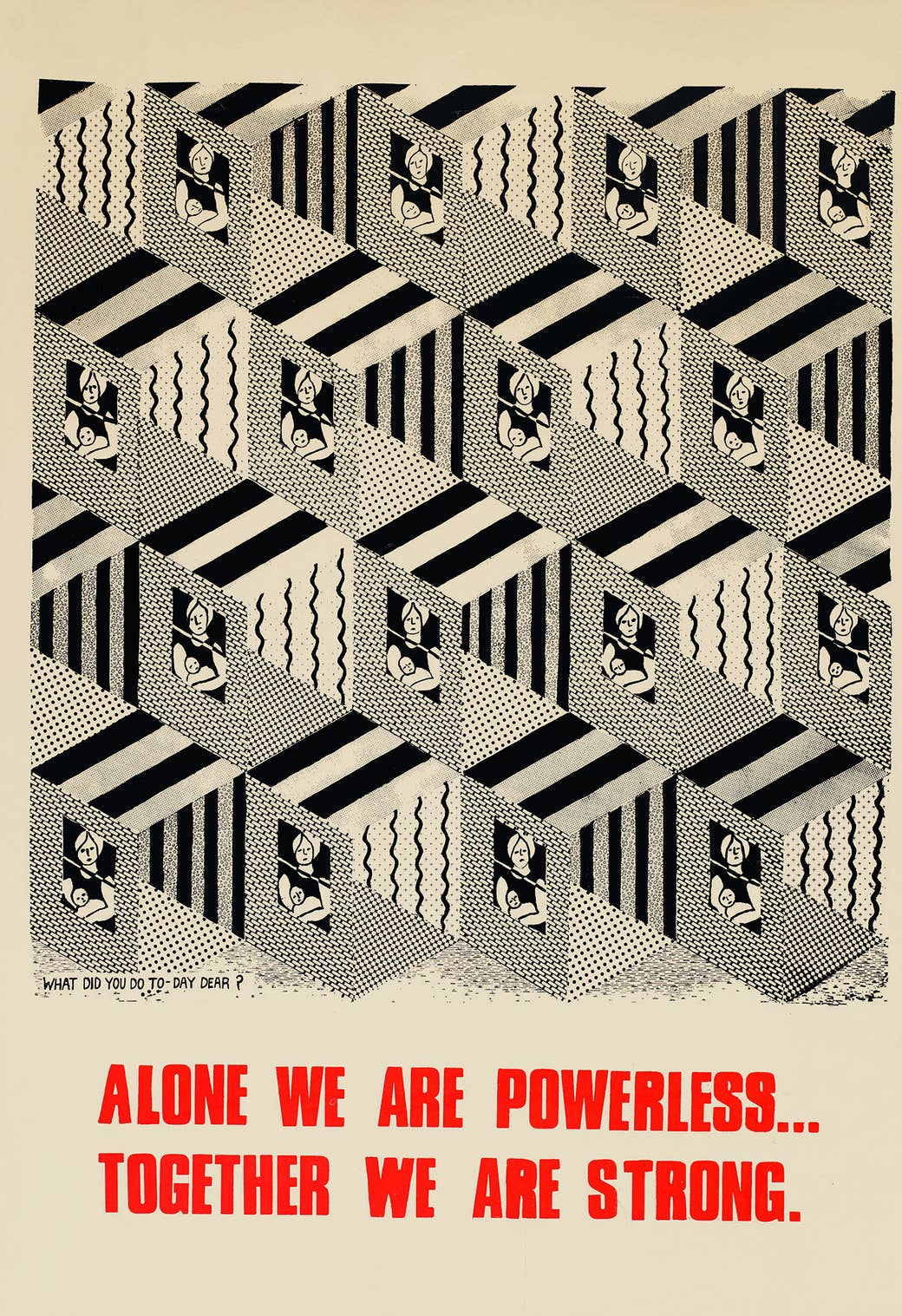
Not only is it true that we cannot survive alone, it is also true that we are able to do anything when we organise together.
We know that is true because so much is invested to prevent it from happening. Yes, it is true that installing the colonial program in us that it is human nature to compete is profitable for the ones who exploit us. That competition it creates could and does generate wealth and resources.
But is that the only reason? Consider too how powerful the social superpower of our species is. If you were a power-hungry sea monster who knew that organised citizens will achieve pretty much anything they wanted to by working together, wouldn't you try to divide and conquer them from doing so?
As individual consumers, we can do almost nothing to change social or environmental outcomes. But as citizens, combining effectively with others to form political movements, there is almost nothing we cannot do. Those who govern on behalf of the rich have an incentive to persuade us that we are alone in our struggle for survival and that any attempts to solve our problems collectively—through trade unions, protest movements, or even the mutual obligations of society—are illegitimate or even immoral. The strategy of political leaders such as Thatcher and Reagan was to atomize and rule. — Monbiot and Hutchison, 2024
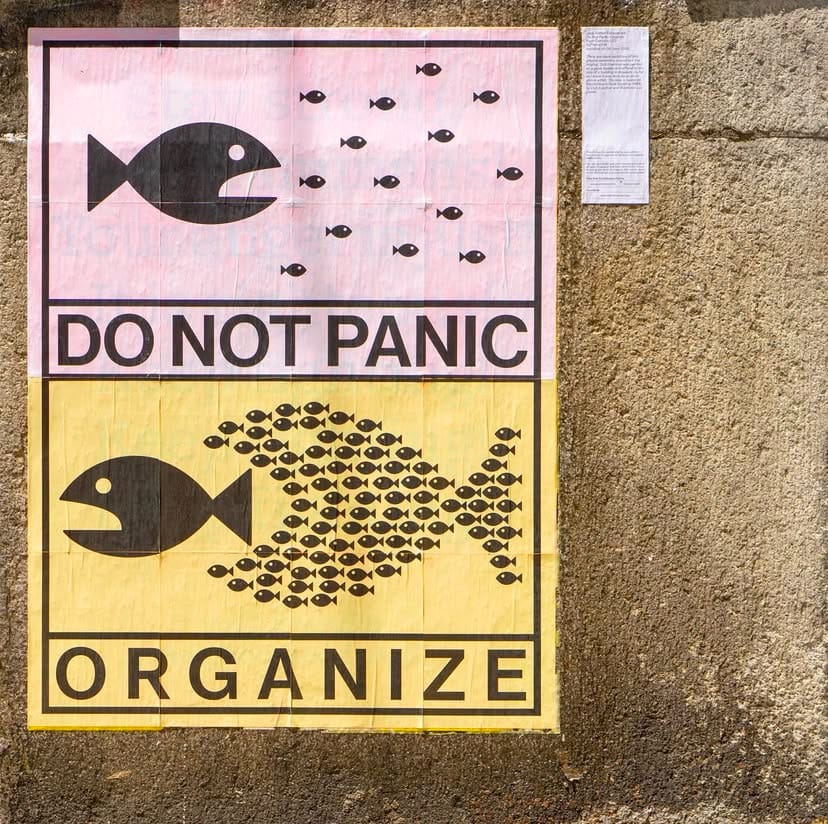
Back to hating on Hobbes one more time: When he says that an all-powerful sovereign is necessary for peace in society, what he is really saying is that all of us peasants cannot be trusted to govern ourselves peacefully and safely without being dominated by the ruling class. That we will only be a threat to ourselves over and over until the most powerful step in.
The monsters up top want us to believe our love, tenderness, and affection for each other only gets in our way. In March 2025, the richest man ever told one of the most popular podcasters online that empathy is a bug that makes civilisation weak. His critique of empathy echoes the Reich Minister of Propaganda in 1942 warning Germans that being too sympathetic to others would destroy their project. Meanwhile the billionaire exploits USA's poorest communities for his experimental space fantasy.
The billionaire and celebrity obsession with someday leaving Earth for space shows us that a common characteristic of neoliberal fantasies is an escapism that lacks imagination. The ruling class expose themselves in their fantasy of detaching from an ungrateful world: Money makes one so abnormal that they managed to forget that they are the ones totally dependent on the labour of others, even in their own homes. Workers don't need billionaires to run their lives, but the billionaires definitely need workers. How comically unrealistic it is then for them to fantasise of escaping regulation, obligation, democracy, to wide open space, as if power, greed, and control wouldn't follow them there. Will they suddenly begin to do their own laundry, their own meals, produce their own Botox? Did they imagine dirtying their hands doing machine repairs?
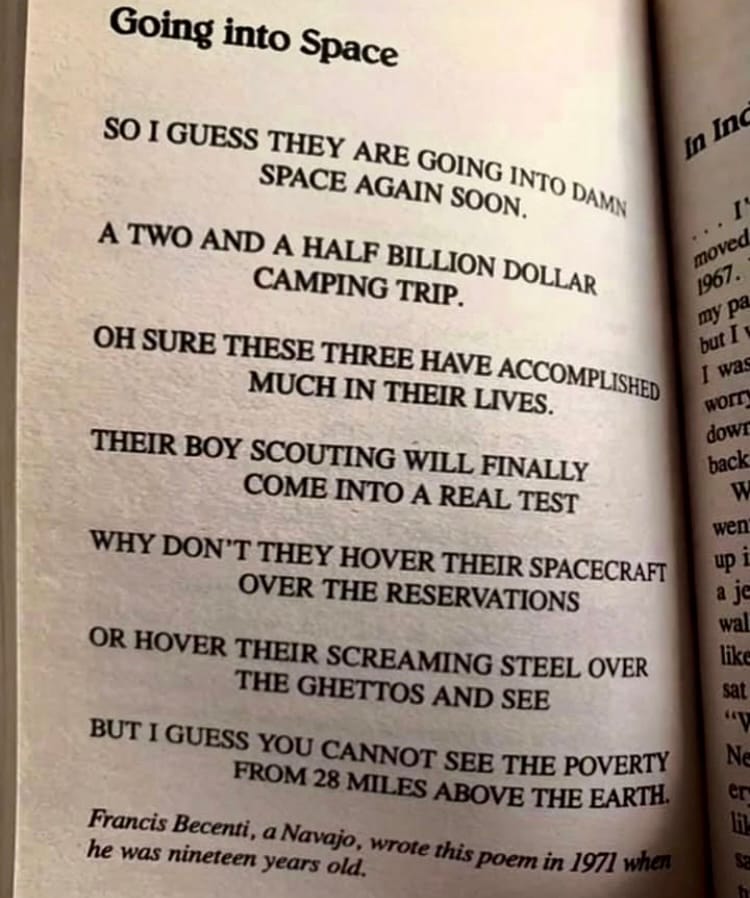
In early 2024, scientists 'discovered' the world's largest snake while filming a National Geographic Disney+ series in the Brazilian rainforest. A few days later, she was found dead. Since she was healthy and in the prime of her life when she died, the Dutch researcher who swam with her condemned the hunters. And of course, in came the comments about how shit people are, and that humans are the worst ever. But did she not grow 26 feet long sharing space with Indigenous communities, and survived up to that point? Indigenous people have been right with nature for thousands of years. When we say "humans were the worst thing to ever happen to the planet", we are blaming all of humankind for the problems caused by expensive structures of death production. We need to smash those death-making structures.
... unless the old scripts animated by false notions of superiority and inferiority are ripped to shreds, we will be caught in an endless purgatory: forced to inhabit the same tired roles as we advance predictable and deadly plots. Instead, let us clear the way for new stories! Let us follow the example of Indigenous protesters who demand that we smash death-making structures and construct new ones that give us life. — Ruha Benjamin, 2024
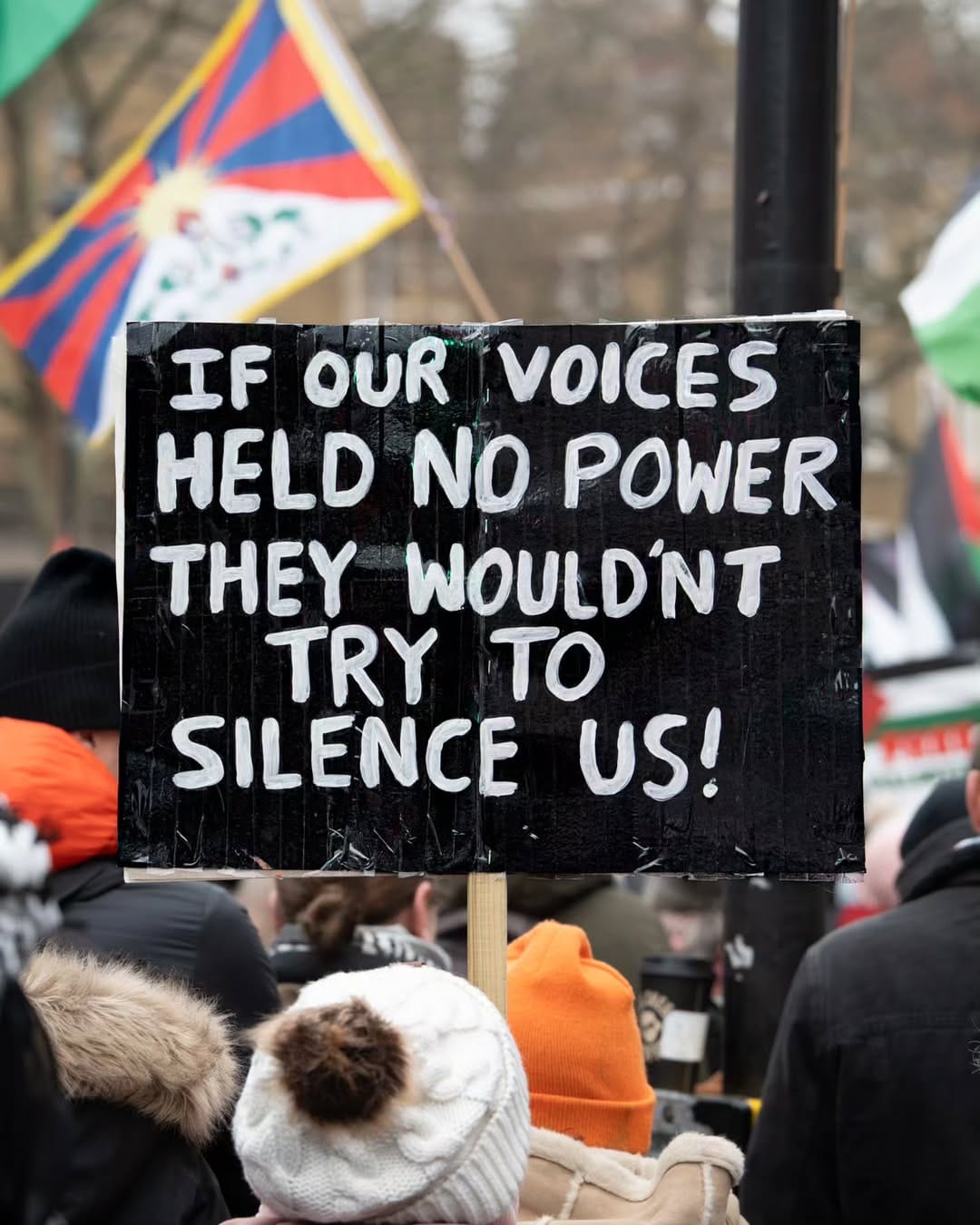
In times of crises, we humans become our best selves.
The study of disasters makes it clear that there are plural and contingent natures, but the prevalent human nature in disaster is resilient, resourceful, generous, empathic, and brave. — Rebecca Solnit, 2009
Although some people will still be manipulative in a traumatising society that systematically fails them, cooperation and collaborative care are common human responses to disaster. Numerous stories bear this out, I have known it to be true where I live, and hope it has been your experience too in your local crises.
Obviously, other people can and do harm us, regardless of how much we share. But the conditions that alienate us and enable harm are wholly alterable. People are capable of generating social mechanisms and relations that foster safety and understanding within communities. People are capable of overcoming, or at least negotiating, difference for the sake of their common interests, especially in moments of crisis. As the unprecedented flourishing of mutual aid projects during the pandemic has demonstrated, many people respond to communal crisis with generosity and shared concern. The idea that disasters autogenerate panicked, aimlessly violent hordes of people who must be controlled with an iron fist is an authoritarian fever dream. While the powerful would have us believe that frightened people are always selfish and hypervigilant, cooperation and collaborative care are common human responses to disaster. — Kelly Hayes and Mariame Kaba, 2023
We must get it out of our heads that this is a doomed time and we are simply waiting for the end. In comparison, the optimism of the oppressed is far more rational. It is more effective at adjusting and sustaining itself within the cycles of an ever-changing life. The oppressed knows every empire falls, that change is inevitable.
Even when you feel like you are stuck in one place, you're factually not. Your cells are constantly dying and being born at different speeds. Cells in your colon regenerate every three to five days. Your body is constantly changing, and your environment is constantly changing. You might think it's rational and based to accept that nothing good will ever happen, that this is the way things will be, that we'll never make things better. We're all fucked. There was a person in 1400s Hungary who thought the exact same thing. Kingdom had been around for far longer than capitalism has been around by now. — Elliot Sang, 2024
How does evil sustain itself? By saying our problems will last forever. By forcing into being the situation it says is inevitable, a kind of zombie humanity that wants us to give up on our dreams. It persuades us that buying something will transform us into a more enviable version of ourselves, yet this transformation only makes us poorer. Maybe when people fear the end of the world, what they really fear is the end of the joy they get from buying and owning things.
The times we're living in are expert at creating absences: sapping the meaning of life from society and the meaning of experience from life. This absence of meaning generates stringent intolerance toward anyone still capable of taking pleasure from simply being alive, from dancing, from singing. There's still a whole constellation of little groups of people who dance, sing, make it rain. The kind of zombie humanity we're being asked to join can't bear so much pleasure, so much fruition in life. So they holler on about the end of the world in the hope of making us give up on our dreams. — Ailton Krenak, 2020
Humans are not very good at predicting the future. We do not even consistently notice when our own relationships or health issues are falling apart. Sometimes we forget some things haven't always been the way it is, and sometimes we think what we are experiencing will last longer than it actually will.
There is a tendency to think that what we see in the present moment will continue. We forget how often we have been astonished by the sudden crumbling of institutions, by extraordinary changes in people’s thoughts, by unexpected eruptions of rebellion against tyrannies, by the quick collapse of systems of power that seemed invincible. [...] Looking at this catalogue of huge surprises, it’s clear that the struggle for justice should never be abandoned because of the apparent overwhelming power of those who have the guns and the money and who seem invincible in their determination to hold on to it. That apparent power has, again and again, proved vulnerable to human qualities less measurable than bombs and dollars: moral fervor, determination, unity, organization, sacrifice, wit, ingenuity, courage, patience- whether by blacks in Alabama and South Africa, peasants in El Salvador, Nicaragua, and Vietnam, or workers and intellectuals in Poland, Hungary, and the Soviet Union itself. No cold calculation of the balance of power need deter people who are persuaded that their cause is just. — Howard Zinn, 2006
But progress is not inevitable. It is not a given. We get progress as the result of sustained ongoing open-ended resourcing and collaboration. We must team up to turn billionaire world-eater fantasies into nightmares.
Their power comes from you believing in them. They need your money, your approval, your complacency to win. If we stop buying into them, they die. These guys are fucking weak. They have everything and they can’t even stand to be disliked or live through a few days of declining stock prices without freaking the fuck out. Everything that you’ve had to fight for, your job, your savings, your safety, they’ve had handed to them. And now they have made it clear that they think they are entitled to your money too. But they’re not. The harder you boo, the more you protest, the more their stock price drops, the more you turn their fantasy into a nightmare, these protests work. Refusing to comply works. It is easy to see the future you fear as inevitable, especially one being sold to you by a couple of billionaires and the people you’re up against are so rich and so powerful. But their fantasy of the future is not any more inevitable than ours. By working together, we have the power to build the future we want. I suggest you get busy fucking doing it. — Adam Conover, 2025
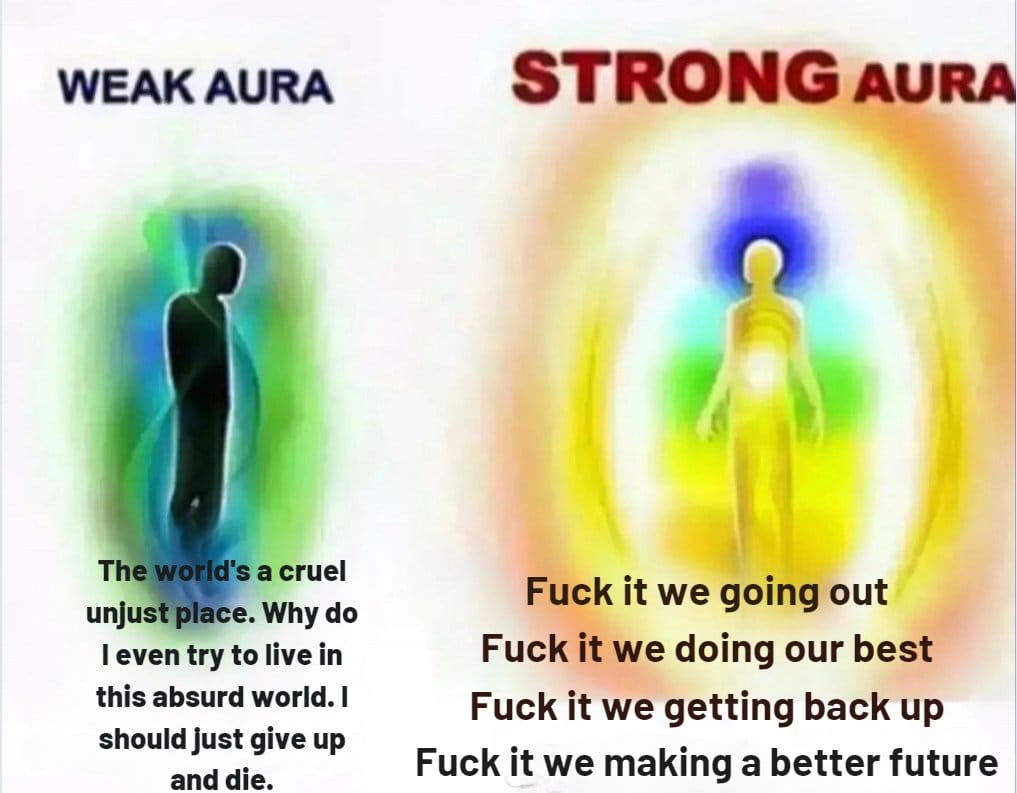
Getting organised is the only way we win.
We have been conditioned to believe in the lie of individual actions. But exploring the past will show that the drivers of change have always been organised mass movements deciding that enough is enough and to try something new.
When you reach the point of political doomerism, that nagging voice that says yes this is bad but there's nothing you can do about it peasant, you have two options. You can continue to mope and whine and wallow in self pity, or you can realise that reaction is programmed into you and choose to do something about it. What's the other option, roll over and die? Accept as inevitable that a handful of people with more power than God have the right to Doom our entire species to sate their greed? No! While you are alive, you try. You try to force change. We are weak only when we act alone. The hyper-individualism of capitalism has conditioned us to believe we are solitary creatures looking out only for ourselves, and that only through individual actions we can decide our fate. That is a lie. Look through any history book and you'll see that the drivers of change have always been mass movements. Masses of people deciding enough is enough, they're trying something new. I know it's scary, I know it's not what you hope your life would look like. But this is the hand we've been dealt. Humanity is at a crossroads. Down one road, we have the genocidal accumulation of capitalism and extinction. Down the other, is survival and the birth of a new socioeconomic order. We get to choose. Make the right choice. Choose to work for a better future. Ignore that insidious voice in your head that says: This is just how things are. You think like that, and there's nothing separating you from the feudal serf kissing the ring of his lord. — Second Thought, 2024.

References
- Ruha Benjamin, 2024. 📚 Imagination: A Manifesto
- George Monbiot and Peter Hutchison, 2024. 📚 Invisible Doctrine: The Secret History of Neoliberalism
- Dorian Lynskey, 2024. 📚 Everything Must Go: The Stories We Tell About The End Of The World
- Second Thought, 6 September 2024. 📺 Why Capitalism Loves Doomers https://youtu.be/iEnnUrYtCMA
- Elliot Sang, 4 January 2024. 📺 You Will Be Okay. You Have No Choice. https://youtu.be/tq_nCR7m3PY
- Arun Kundnani, 2023. 📚 What Is Antiracism? And Why It Means Anticapitalism
- Kelly Hayes and Mariame Kaba, 2023. 📚 Let This Radicalize You: Organizing And The Revolution Of Reciprocal Care
- Sophie from Mars, 18 August 2023. 📺 The World Is Not Ending https://youtu.be/DalnJ-isI5A
- Rochelle DuFord, 2022. 📚 Solidarity in Conflict: A Democratic Theory
- Ailton Krenak, 2020. 📚 Ideas to Postpone the End of the World. Translated by Anthony Doyle
- Rutger Bregman, 2019. 📚 Humankind: A Hopeful History
- Howard Zinn, 2006. 📚 A Power Governments Cannot Suppress
- John Berger, 1972. 📚 Ways of Seeing
- Daniel J. Boorstin, 1962. 📚 The Image: A Guide To Pseudo-Events in America
For full notes / sources, see the reference channel: are.na/liy/fake-human-nature-fantasy

